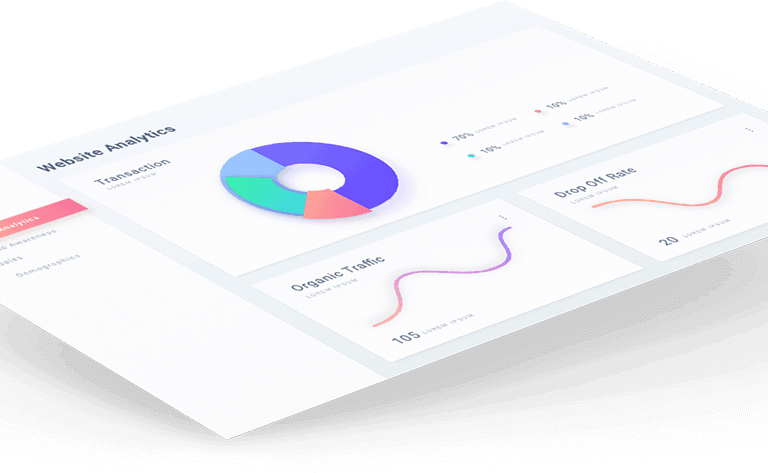In the dynamic landscape of modern fleet management, the role of technology cannot be overstated. Among the innovative tools that have revolutionized the way fleets operate, vehicle tracking software stands as a cornerstone.
This sophisticated solution empowers fleet managers with real-time insights, data-driven decision-making, and operational control that transcends traditional boundaries.
In this comprehensive article, we will delve into the myriad ways fleet managers can harness the power of vehicle tracking software to optimize daily operations, elevate efficiency, and ensure seamless coordination across their entire fleet.
Empowering Fleet Management with Vehicle Tracking Software
Vehicle tracking software is a technological marvel that amalgamates the prowess of GPS, data analytics, and cloud computing. This powerful fusion allows fleet managers to monitor the whereabouts, movement, and performance of each vehicle in their fleet, all through a centralized digital platform.
Strategies to Revolutionise Fleet Operations
Fleet managers can leverage the capabilities of vehicle tracking software to streamline various facets of their daily operations:
Real-time Fleet Visibility and Monitoring
At the core of vehicle tracking software lies the ability to provide real-time visibility into the fleet’s entire network. Fleet managers can monitor the real-time movement, location, and status of every vehicle, enabling them to react promptly to any emerging situations.
Precision Route Optimisation
One of the most transformative features of vehicle tracking software is route optimization. Fleet managers can employ the software to create and fine-tune optimal routes based on real-time traffic updates, leading to minimized travel time and reduced fuel consumption.
Agile Dispatching and Resource Allocation
With vehicle tracking software, dispatching becomes an agile and well-informed process. Fleet managers can identify the nearest available vehicle to a task or job site, ensuring prompt response and efficient resource allocation.
Driver Performance Enhancement
Vehicle tracking software empowers fleet managers to monitor driver behaviour and performance metrics. This data, encompassing aspects such as speeding, idling, and braking, enables managers to provide targeted coaching and feedback for improved driver safety and fuel efficiency.
Proactive Maintenance Scheduling
By tracking mileage, engine hours, and usage patterns, vehicle tracking software facilitates proactive maintenance scheduling. This strategic approach reduces unforeseen breakdowns, minimizes vehicle downtime, and extends the operational lifespan of vehicles.
Compliance Management Made Simple
For industries bound by regulatory requirements, vehicle tracking software serves as a tool for compliance management. It aids in monitoring hours of service (HOS), rest periods, and adherence to designated routes, ensuring that fleet operations are in accordance with legal mandates.
Elevated Customer Service
The real-time tracking data provided by the software enables fleet managers to provide accurate delivery estimates to customers. This transparency enhances customer satisfaction and fosters a sense of trust in the reliability of the fleet’s services.
Theft Prevention and Rapid Recovery
Vehicle tracking software acts as a potent deterrent against theft. In the unfortunate event of vehicle theft, fleet managers can swiftly track and recover the stolen asset, minimizing financial losses.
Informed Decision-making through Data Analytics
“The data generated by vehicle tracking software provides valuable insights into various operational aspects. Fleet managers can analyze this data to identify patterns, trends, and areas where enhancements can be made.”
Optimising Software Utilization: Key Steps
Maximizing the benefits of vehicle tracking software for daily operations requires strategic implementation:
Define Clear Objectives
Clearly define your goals and objectives for integrating the software. Whether it’s reducing operational costs, improving fleet efficiency, or enhancing safety, having a clear roadmap will guide your software utilization.
Thorough Team Training
Empower your team with comprehensive training on effectively using the software. Ensuring that every team member is well-versed in its features and functionalities will facilitate seamless integration.
Customised Alerts and Reports
Tailor alerts and reports to align with your operational needs. Set up alerts for specific events like speeding or unauthorized usage, and design reports that offer actionable insights for informed decision-making.
Regular Data Monitoring and Analysis
Consistently monitor the data generated by the software. Analyze trends, patterns, and anomalies to uncover opportunities for operational enhancements and cost savings.
Constructive Feedback and Coaching
Utilize driver performance data to provide constructive feedback and targeted coaching to your drivers. Recognize exemplary driving behaviour and address areas that require improvement.
Cross-functional Collaboration
Recognize that vehicle tracking software transcends fleet management. Collaborate with other departments, such as logistics and customer service, to share insights and optimize operations holistically.
Conclusion
In the digital age of fleet management, leveraging technology is no longer an option but a strategic necessity. Vehicle tracking software emerges as a transformative tool that empowers fleet managers to orchestrate daily operations with precision and efficiency. From real-time visibility to route optimization and driver performance monitoring, the benefits of vehicle tracking software span the entire spectrum of fleet management.
As technology continues to evolve, the proactive integration of vehicle tracking software becomes a catalyst for innovation and operational excellence. By embracing this technology and implementing best practices, fleet managers can steer their daily operations toward success, ensuring timely deliveries, heightened safety, and a resilient foundation for the future of their fleet and organization.




